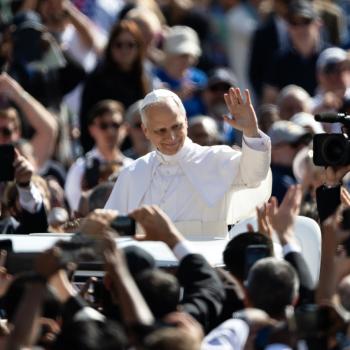 |
| Image courtesy of xXBlackMagicXx |
Across the 4,100 pages of the Harry Potter saga, Rowling writes of magic and mystery and adventure, but throughout the story, there are even more magical themes at work. In his new book, One Fine Potion: The Literary Magic of Harry Potter, Greg Garrett explores the “Deeper Magic” of J.K. Rowling’s writings. The importance of community, the handling of power, the need for redemption -- all of these are powerful forces in Rowling’s work -- and Garrett looks at them one by one, holding them up to the light of culture, literature, and faith. Garrett is a Professor of English at Baylor University, has written more than a dozen books on faith and culture, and is an active blogger at theotherjesus.com, a columnist at Patheos, and has many other print and web publications. He writes with a perspective of hope, leading the reader through Harry Potter’s world and helping them to see the deeper meanings in Rowling’s words.
What does One Fine Potion offer that is different from other books on the topics of Harry Potter and faith? Why were you compelled to write this book?
I guess the glib answer would be that what’s different is that no other book about Harry Potter was written by me, although that’s hardly sufficient. Still, I think, as a novelist and theologian both, I am both a strong reader and critic, and a person who can outline the theological messages the Potter narrative carries with some skill and beauty. The approach I took in reading Potter -- a four-fold medieval reading -- is, I think, unique, and offers powerful perspectives into the Harry Potter story. But ultimately, I wanted to spend the last few years thinking about and writing this book because I felt that Rowling’s 4100-page epic was the best and most powerful contemporary retelling of the gospel narrative I’d encountered. I learned powerful things about my own faith from reading Harry Potter, and that’s coming from someone who thinks, speaks, and writes about faith all the time.
In One Fine Potion, you write at length about the handling of power and about not using it to the disadvantage of others. As an educator, what would you say about the handling of knowledge as power and the correct way of using knowledge in the relation to others?
Good question, Evan -- thank you. I think my approach would have to be the same as my comments in the book: knowledge in Harry Potter’s world is about learning enough to shape the world as one wants. That’s a good definition of power, the ability to shape the world around you. But we all have a responsibility to be aware that what we want may not be what is best -- in fact, it may not be good for anyone but ourselves. We all have a responsibility to shape the world with compassion even for those with whom we might disagree. Knowledge should be a force for good.
What simple message would you give to those you mention in your book who believe that J.K. Rowling is a “Satanist” and is trying to promote witchcraft to younger audiences?
It’s tempting, of course, first to simply argue that this is ridiculous. The Harry Potter novels are fantasy, after all, and magic is a core component of fantasy. Or one might be moved to argue facts -- that J. K. Rowling has spoken about her Christian faith since the release of the first novel, that she has denied that she is a witch, that she has denied any belief in magic, that after the final novel was released, she gave interviews in which she said her faith had shaped the entire narrative and that the two Bible verses in the final book are the thematic core of the series. But people who believe J.K. Rowling is a witch and that the books promote witchcraft are arguing from an appeal to a couple of Old Testament Bible verses which I guess we could say are their thematic core.




